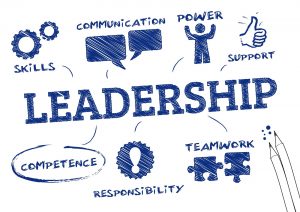Whether leaders are made or born is debatable. Some say that leadership is not a natural talent, as it can be developed by anyone. On the other hand, many argue that leadership skills are always inborn and there are fixed characteristics leaders have that an ordinary man doesn’t. I have been inspired by many leader’s speeches and my personal experiences; I believe that there are 6 ways we can transform ourselves with the notion of what makes a leader.

Over the past 5 decades, the art of ancient rhetoric has been decreasing at an alarming rate. History says that in early schooling systems, people used to provide free education to students learning rhetoric – art of persuasive speaking and less emphasis were given to core subjects like Maths. Recently, teaching rhetoric is restricted to a powerful privileged few, helping them to speak like leaders. There are six techniques that a layman can follow persistently to transform themselves into leaders. The first 3 magic techniques tap emotions, manipulate the audience’s feelings and keeps them in constant focus with the speaker: 1) Three Breathless Sentences – used to emphasise facts in arguments, help the speakers to give more concrete compelling, convincing and credible statements to grab more attention. 2) Three repetitive sentences – help the leader to express their passionate feelings by stressing the fact purposefully, for instance, market traders used to manipulate investors to get their deal done efficiently. 3) Three balancing statements – use to create an illusion and make people accept their arguments; make them feel that the underlying thinking is balanced.

In terms of neuroscience, the next 3 techniques work because they speak to the instinctive, emotional and logical brains of the listeners. ‘Metaphor’ is a powerful piece of communication in politics and business organization. Speakers used to create beautiful images to lead, attract or recoil, people, it has the enormous impact on people’s emotions. One of the most basic and effective rhetoric devices is the use of ‘Exaggeration’ is usually attractive and grabs their listeners’ attention completely. Last but not the least, ‘Rhyme’ is the simplest technique as it helps individuals to express their emotions and perception in a persuasive manner.
To sum up, these leadership skills can be used by anyone to master the art of speaking to persuade the audience. These rhetorical skills are very significant to people who want to express their feelings, convey positive thoughts and to create a sustainable society.
References:
- Personal Experiences and Inspirations
- (2016, May 22). Speak like a Leader. Retrieved April 01, 2017, from https://www.youtube.com/watch?v=bGBamfWasNQ